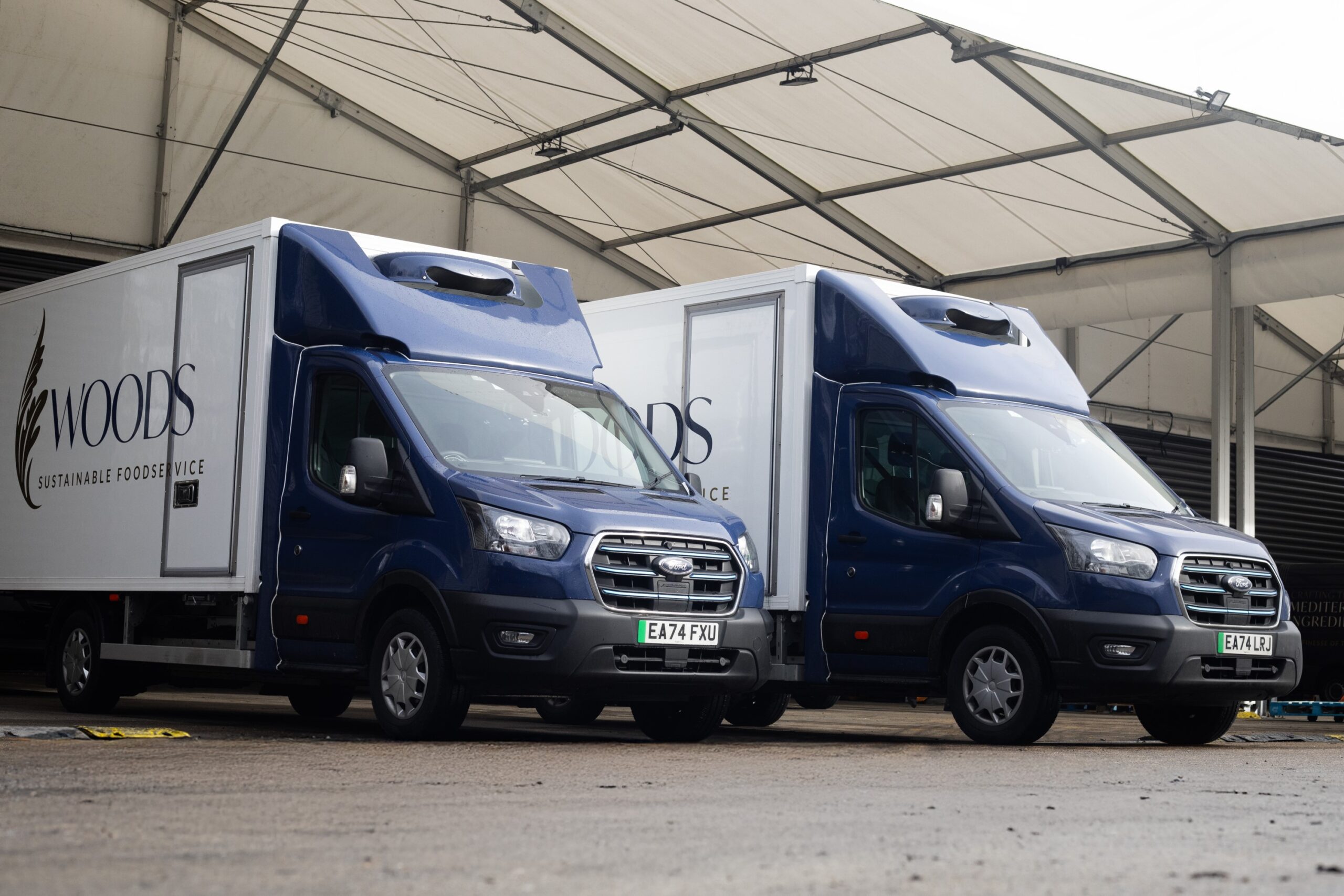Woods Foodservice, an award-winning foodservice supplier to top chefs in the hospitality industry, has started its switch to electric vans by taking delivery of 12 refrigerated Ford E-Transit L4s from Progreen, the sustainable vehicle hire and alternative fuels division of Prohire.
The national provider of sustainable commercial vehicle hire and fleet management solutions was appointed by Woods, a family-owned business that has supplied top-end hospitality providers and restaurateurs for over forty years, as part of its sustainability strategy. Woods’ mission is to become the UK’s leading Net Zero contributor foodservice company by 2030. To achieve this, it plans to replace its entire Euro 6 fleet with electric vehicles by the end of the 2025 financial year, building on its investment in fully electric company cars.
The state-of-the-art electric vans are equipped with solar panels on the roof, reducing the energy required for charging. Each vehicle offers multi-temperature storage, including chilled, ambient, and frozen compartments, enhancing Woods’ delivery capabilities while minimising its environmental impact. This first wave of electric vans, which have been designed and managed through the production process by Progreen, will operate within London’s Ultra Low Emission Zone (ULEZ).
Progreen has fitted Geotab telematics across all 12 vehicles to give Woods real-time insights to maximise efficiency and cost savings. By monitoring vehicle performance and driver behaviour, Woods can optimise operations, reduce costs, and track CO2 savings, ensuring a smarter, more sustainable fleet.
Wayne Gregory, operations manager at Woods Foodservice said: “Since receiving our new bespoke multi-temperature van design, we’ve seen a significant boost in efficiency. Being able to deliver chilled, frozen, ambient, and fresh produce all in one vehicle has streamlined our operations. The real game-changer, though, is doing it all with electric vans—cutting our diesel fuel usage by 35%.
“The addition of solar panels on the roof has been a great solution to one of our biggest concerns. They help reduce the strain on the batteries when running freezer units, minimising the impact on the van’s range.”
Michelle Miles, head of Progreen said: “It’s fantastic to see these vehicles on the road, the final stage of a process that began with a telematics trial to provide data on the suitability of transitioning from diesel to electric vehicles. This is the ideal solution for Woods Foodservice and we’re thrilled to support them in their mission to become the UK’s leading Net Zero contributor foodservice company by 2030.”
“We look forward to working with Woods Foodservice in years to come as they continue on their sustainability journey.”
